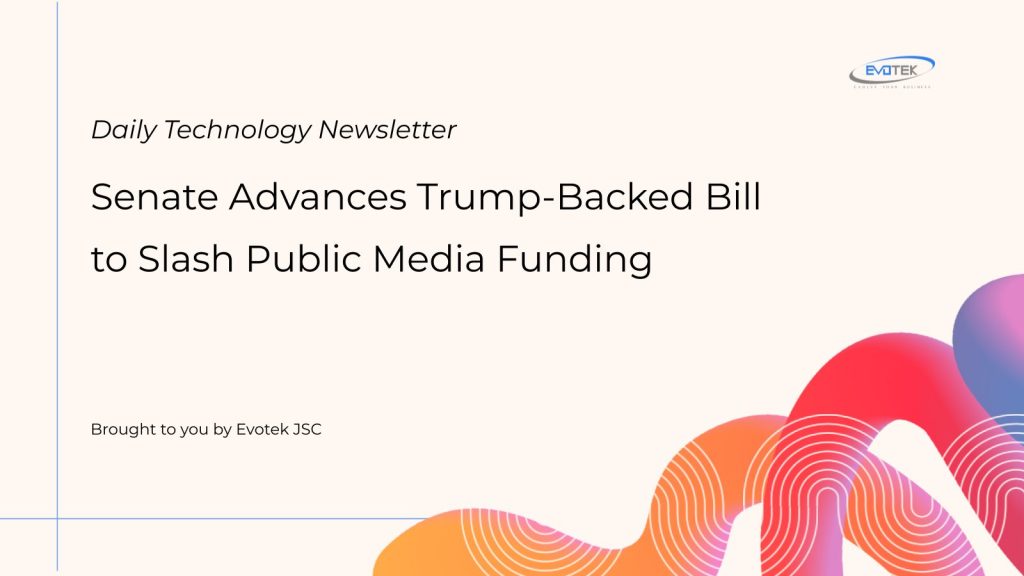In a pivotal move on Tuesday evening, the U.S. Senate cast a vote to advance legislation aimed at rescinding $1.1 billion in allocated federal funding for PBS, NPR, and various public media outlets over the next two years.
The critical vote saw Vice President JD Vance break a 50-50 tie, pushing the controversial rescissions package forward. Notably, three Republican senators—Lisa Murkowski (R-AK), Susan Collins (R-ME), and Mitch McConnell (R-KY)—sided with all Democrats and independents in opposition to the measure. A final Senate vote on the rescissions package is anticipated within the coming days, determining the future of federal funding for public broadcasting.
Impact of Proposed Cuts on Public Broadcasting
If enacted, the proposed cuts would entirely eliminate federal funding for the Corporation for Public Broadcasting (CPB). Established nearly six decades ago by Congress, the CPB is the primary body responsible for distributing grants to public radio and television stations nationwide, supporting their vital services.
The push to defund public broadcasting originated from the Trump White House, forming part of a broader rescissions package totaling over $9 billion, which also targets foreign aid and health programs. While some Republicans have historically advocated for ending public media funding, former President Trump and his allies have specifically justified these cuts by citing alleged liberal bias in programming.
Key Arguments in the Senate Debate
During floor debate, Senator Murkowski articulated her dissent, arguing that concerns over perceived left-wing bias at outlets like NPR should be addressed directly, rather than by “gutting” the Corporation for Public Broadcasting, which serves as the backbone of public media funding.
Conversely, Senator Mike Rounds (R-SD), initially undecided, announced his support for the package after receiving assurances from the Trump administration that alternative funding would be secured to “continue grants to tribal radio stations without interruption,” addressing a key concern for his constituency.
House Speaker Mike Johnson echoed the sentiment of funding misuse, labeling public media support a “misuse of taxpayer dollars.” He argued that these outlets engage in “biased reporting,” despite claiming objectivity, and that the modern media landscape offers “so many different areas for information,” negating the need for federal support.
Senate Minority Leader Chuck Schumer (D-NY) vehemently opposed the measure, emphasizing the vital role of public broadcasting for millions of Americans. He highlighted its critical functions, including providing weather alerts, local news, educational programming, and essential information, particularly for rural and Native communities. Schumer condemned the proposed cuts as a false pretense of “eliminating waste,” asserting they were merely a means to “pay for their cut taxes for billionaires.” He also underscored the timeliness of these services, citing recent floods in Texas where up-to-the-minute forecasts can mean the difference between life and death, and for many, public radio and local TV are the only reliable sources.
Political Stakes and Deadline
Adding a layer of political pressure, former President Trump has reportedly threatened to withdraw support or endorsements from any lawmaker voting against the funding cuts. With the House having already approved the package last month in a narrow 214-212 vote, Congress now faces a critical Friday deadline to finalize approval, or the allocated funds will remain in the budget as originally planned.

 日本語
日本語 한국어
한국어 Tiếng Việt
Tiếng Việt 简体中文
简体中文